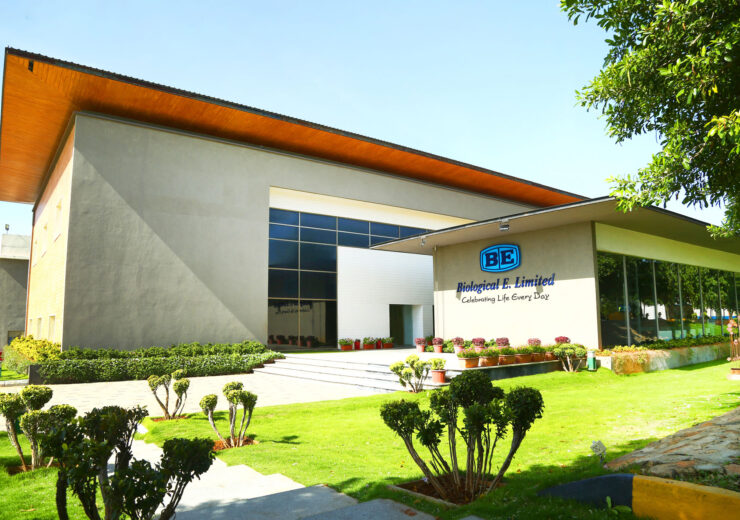Biological E will manufacture up to 50 million doses of the Qdenga vaccine annually, advancing Takeda’s ability to deliver 100 million doses per annum by 2030, to provide multi-dose vials (MDVs) for National Immunisation Programs in endemic countries

Biological E vaccine manufacturing plant. (Credit: Biological E Limited)
Japanese pharmaceutical firm Takeda has teamed up with Indian vaccine maker Biological E to enhance the production of Qdenga (dengue tetravalent vaccine [live, attenuated]) multi-dose vials (MDVs).
Also known as TAK-003, Qdenga is a dengue vaccine developed based on a live-attenuated dengue serotype 2 virus, which is the genetic basis for all four dengue virus serotypes.
Biological E will ramp up to a manufacturing capacity of up to 50 million per annum, advancing Takeda’s efforts to produce 100 million doses a year within the decade.
The Qdenga MDVs will be offered to the governments in endemic countries by 2030, to support their National Immunization Programmes to prevent dengue.
MDVs are said to offer economic and logistical advantages by reducing packaging and storage costs, while also reducing medical and environmental waste.
The partnership builds on existing manufacturing capacity for the vaccine at Takeda’s facility in Singen, Germany and Takeda’s long-term partnership with IDT Biologika.
Takeda global vaccine business unit president Gary Dubin said: “Takeda’s long-term goal for our dengue program has been to make Qdenga broadly available to those at risk who may benefit from immunization.
“We are proud to announce a strategic manufacturing partnership with Biological E. Limited, which has deep expertise in vaccine manufacturing and longstanding support of public health programs around the world.
“Together, we will help combat dengue on a global scale by significantly increasing manufacturing capacity for multi-dose vials of Qdenga to drive sustainable access to the vaccine in more endemic countries.”
Dengue fever is one of the most common mosquito-borne viral diseases worldwide, with global incidence rates increasing 30-fold over the last 50 years.
The disease is currently identified as endemic in more than 100 countries and causes an estimated 390 million infections each year.
The Americas, South-East Asia and Western Pacific regions are the most seriously affected, with Asia alone accounting for around 70% of the global burden.
Qdenga is currently available in the private market in Europe, Indonesia, and Thailand, and in private and some public programs in Argentina and Brazil and is not approved for use in India.
Established in 1953 in Hyderabad, Biological E is the first private-sector biological products company in India and the first pharmaceutical company in Southern India.
The company develops, manufactures, and distributes vaccines and therapeutics. Its vaccines are supplied to over 130 countries and therapeutics are sold in India, the US and Europe.
Furthermore, Biological E has started developing speciality injectable products for global markets, manufacturing APIs sustainably and developing novel vaccines for the global market.
Biological E managing director Mahima Datla said: “Takeda’s commitment to patient-focused, value-based research and development aligns extremely well with our dedication to advancing healthcare.
“We are fortunate to have created an institute that attracts such strong global partners for complex vaccines and underscores our shared mission of shaping a healthier future for all.
“With Takeda’s esteemed history and global presence, we are honored to advance our vision of delivering highly innovative medicines and transformative care worldwide.”
